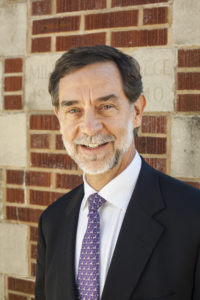by Katherine Wroblewski
news editor
School shootings are occurring more frequently than in previous decades. Columbine High School and Sandy Hook Elementary are just some of the tragic occurrences that instigated guns laws being revised in attempt to make them stricter. Despite the Virginia Tech University massacre in 2007 being the deadliest school shooting in U.S. history, guns laws regarding college campuses continue to be overlooked.
Last year, more than two dozen shootings took place on or near college campuses, and just last week those statistics increased. Last Tuesday, a student at Purdue University was fatally shot. On Friday with another fatal shooting occurred, this time at South Carolina University. Undoubtedly, more college shootings will occur in the upcoming years. This leads one to question how prepared respective college campus security teams are. According to a recent survey by Campus Safety Magazine, one in four campus police departments are not prepared to handle an active shooter. In addition to this, 46 percent say that they are understaffed.
 The issue of campus security is highly contested. Since the federal government has not made a specific push to keep guns off college campuses, the decision is left to the state governments and college administrators. Many colleges forbid firearms and explosives, but Republican lawmakers routinely push to allow guns on campuses.
The issue of campus security is highly contested. Since the federal government has not made a specific push to keep guns off college campuses, the decision is left to the state governments and college administrators. Many colleges forbid firearms and explosives, but Republican lawmakers routinely push to allow guns on campuses.
photo courtesy of Millsaps College Flickr
photo courtesy of Millsaps College Flickr
In Colorado, some have made a recent effort to reinstate a state-wide ban on guns on college campuses. But states such as Georgia and Pennsylvania have considered making it even easier to bring guns to college. Legislature in Texas and North Carolina have passed laws allowing students who are licensed gun owners to keep hand guns in their vehicles. And then there’s Florida, where a group is fighting to not just allow guns on campus, but in students’ dorm rooms.
Most national surveys show that faculty and students are in agreement, and think that having guns on campus is a terrible idea. Idaho State University provost Gary Olson said, “There is no recorded incident in which a victim, or spectator, of a violent crime on a campus has prevented that crime by brandishing a weapon.”
So, how safe are we? The Millsaps firearms, weapons and explosives policy states that “Students may not possess firearms, fireworks or any materials which may be hazardous to the health or safety of other occupants in the building.”
John Conway, the director of campus safety, says he doesn’t see the college’s policy changing anytime soon. “We are in a state that appreciates its civil liberties, particularly as they related to gun ownership and the second amendment; but we are a private campus. And the boards of trustees and the college administrators have determined that we will prohibit firearms,” Conway says.
However, as Millsaps is in a state hunting is a popular hobby, campus safety does allow students to check in weapons at the campus safety office, where they are locked away until students check them out again as they leave campus. “We want to be sensitive to our community, and the wants and needs that they have,” Conway says. If the case of an active shooter on campus, security would send out alerts via text message, e-mail, voicemail and social media, Conway explains.
The security force on campus is a private force, but they also rely on the Jackson Police Department when incidents deem it necessary. The security guards on campus undergo firearm training yearly, and Conway is certified through the sheriff’s department.
This is a complex issue, and the law will surely adjust and change in the years to come. As for Conway, he says, “I believe personally, that weapons are best used by people trained regularly.” And I couldn’t agree with him more.
